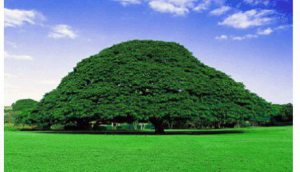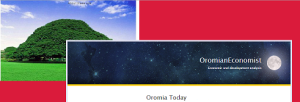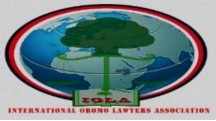The Political Crisis in Ethiopia December 6, 2016
Posted by OromianEconomist in Uncategorized.Tags: #OromoProtests, Africa, African Studies Association, David H. Shinn, Ethiopia, Oromo
add a comment
By David H. Shinn, Adjunct Professor, Elliott School of International Affairs
George Washington University
The Ethiopian People’s Revolutionary Democratic Front (EPRDF) is experiencing its most serious governance and security challenge since it took power in 1991. It dealt successfully with the Eritrean-Ethiopian war from 1998 to 2000, managed to avoid destruction during an internal party schism at the beginning of this century, and papered over a serious political crisis in the aftermath of the 2005 national elections.
The current situation is different. It is a grassroots protest movement centered in Oromia but with manifestations in other parts of the country. Unlike the 2005 post-election crisis, the protests are not being driven by opposition political parties but mostly by individuals with local grievances and, in some cases, long-standing concerns that the EPRDF does not allow sufficient space to express dissent. Today, there is less freedom of the press and openness in Ethiopia’s political system than when I served as ambassador from 1996 to 1999.
The protests in 2016 have occurred in spite of impressive economic growth and infrastructure improvements orchestrated by the EPRDF over the past fifteen years. However, this raises the question whether these achievements in the economy are benefiting the peasant farmer and urban laborer. Part of the problem is that any government, irrespective of its success in managing the economy, begins to wear out its welcome after 25 years in power. There is also the perception of growing corruption in the political system, another common characteristic of parties that remain in power for so many years.
Ethiopia’s high population growth rate, which adds each year to the population between one and two million people, also creates strains in society. The massive expansion of primary, secondary, and, especially, tertiary education, which should be considered an EPRDF success story, has led at the same time to significant youth unemployment or under employment. Even the rapidly growing economy has not been able to employ many of these young people. Each year, an estimated 600,000 Ethiopians enter the work force. That is more than the population of Luxembourg and not a whole lot less than the population of Djibouti.
The diversity and size of Ethiopia add to the governance challenges. The second most populous country in Africa, Ethiopia has some 85 ethnic groups and important religious divisions among Orthodox, Protestants, and Muslims. While religion does not seem to be a significant factor in the 2016 protests, it has contributed to outbreaks of violence in recent years. In the minds of some, ethnic federalism has played a role in the protests, although others argue that ethnic federalism is a positive force. At a minimum, it is clear that ethnic identity continues to be important in Ethiopia’s political process.
You can add to these challenges the fact that Ethiopia is undergoing a generational shift. This development has a potential positive side because the younger generation appears to be less influenced by the prejudices and shibboleths of the older generation. The question is, however, whether enough new blood can move into positions of power before the political system unravels.
The EPRDF response to the crisis so far has been largely the historical Ethiopian response of repressive security measures. The EPRDF announced in January that it would scrap the Addis Ababa master plan that called for expanding the capital into surrounding farms. This was one of the demands of the Oromo protesters but was seen by many as too little, too late. As the protests expanded, the EPRDF increased the number of detentions and arrests, announced a state of emergency in October, and then released 2,000 detainees at the end of October. A cabinet reshuffle took place at the beginning of November.
In mid-November the EPRDF acknowledged that it was still holding 11,000 persons while one of the opposition political parties claimed the number of detainees was 60,000 and deaths had reached 1,500 over the past year. The response to the protests by the EPRDF has been piecemeal, erratic, and disjointed.
All of these issues are exacerbated by several cultural characteristics that I believe are common in the Ethiopian highlands. The concept of compromise appears to be nearly anathema to highlanders. There is a tendency to believe that you must be 100 percent for a position and, if not, you are by definition against it. There is little or no middle ground. This makes it exceedingly difficult to resolve differences. The EPRDF leadership also operates under a high degree of secrecy. There is little transparency in the decision-making process. This contributes to miscalculations by those who mistakenly interpret what the EPRDF is doing.
The question is where does the EPRDF go from here. This is obviously a question for Ethiopians to answer. The EPRDF says it is ready to reform the electoral process. As an outside observer and friend of Ethiopia, I would encourage both supporters and detractors of the EPRDF to take the EPRDF at its word and pursue vigorously electoral reform. A place to start is the municipal elections in 2018. A completely revamped political process that levels the political playing field would, I believe, go a long way to defuse the current crisis. While accommodating the concerns of the large Oromo and Amhara populations, it is also imperative to take into account the fears of the eighty plus smaller ethnic groups in Ethiopia.
EU: The Chair of the European Parliament Subcommittee on Human Rights (DROI) was shocked at arrest of leading Ethiopian opposition figure Prof. Merera Gudina December 6, 2016
Posted by OromianEconomist in Uncategorized.Tags: #OromoProtests, Africa, Ethiopia, EU, EUractiv, Genocide Against Oromo People, ofc, Oromia, Oromo, Professor Merera Gudina
add a comment
Press release – Human rights − 05-12-2016 – 17:52
(EP) DROI, Elena Valenciano (S&D, ES), made the following statement:
“On 30 November Ethiopian security forces detained the chairman of the Ethiopian opposition party ‘Oromo Federalist Congress’ (OFC), Professor Merera Gudina, shortly after his arrival in
Addis Ababa.
Prof. Merera was returning from Brussels where – together with other Ethiopian activists and the Olympian athlete Feyisa Lellisa – he had had a meeting with MEPs on 9 November 2016.
I urge the Ethiopian Government to make public any charges it has brought against Prof. Merera and I will continue to follow his case very closely.
The European Parliament adopted an urgency resolution on the violent crackdown on protesters in January 2016, which requested that the Ethiopian authorities stop using anti-terrorism legislation to repress political opponents, dissidents, human rights defenders, other civil society actors and independent journalists.
Since January 2016 the human rights situation in Ethiopia has not improved at all. Human Rights Watch reports that security forces have killed more than 500 people during protests over the course of 2016. Moreover the state of emergency has led to further significant restrictions on freedom of expression, association, and assembly. I therefore reiterate Parliament’s demands as set out in its resolution.
The European Parliament is aware of the difficult situation in Ethiopia and stresses the need to continue to support the Ethiopian people.”
International Oromo Lawyers Association (IOLA) Press Release on the Arrest of Professor Merera Gudina December 6, 2016
Posted by OromianEconomist in #OromoProtests.Tags: #OromoProtests, #OromoRevolution, Africa, Dr. Merera Gudna, Ethiopia, Genocide Against Oromo People, Keynote Speech of Dr. Merera Gudina at OSA Annual Conference 2016, Oromia, Oromo, Prof. Merera Gudina
add a comment
International Oromo Lawyers Association (IOLA) Press Release on the Arrest of Professor Merera Gudina
5 December, 2016
The International Oromo Lawyers Association (IOLA) expresses its deepest concern over the detention of prominent Oromo/Ethiopian opposition leader professor Merera Gudina, a Chairman of the Oromo Federalist Congress (OFC) and Vice-Chairman of the Coalition of Ethiopian Federal Democratic Unity Forum (MEDREK)).
The Ethiopian government detained prof. Gudina, upon his arrival from Europe where he was addressing the European Parliament in Brussels. He was invited by the EU parliament to brief the MPs on the current situation in Ethiopia in general and the effect of the recently declared state of emergency in particular.
According to the information available to us from the official government media outlet, prof. Gudina was arrested because of his violation of Article 1 of the country’s two-month old State of Emergency decree which, in total contradiction to the nation’s constitution, seriously curtailed citizens’ fundamental right to freedom of expression and assembly. Allegedly, Prof. Merera, was accused of meeting at the EU with official of the so called “terrorist organization” namely Ginbot-7, who was also invitee of the EU MPs.
IOLA is of the opinion that Prof. Merera committed no crime but exercised his fundamental freedom to movement, freedom of expression and assembly as guaranteed in the Constitution of Ethiopia. But invoking terms of the Martial law to detain and subsequently prosecute a citizen is contrary to letters and sprits of international Human Rights Conventions governing aspects of state behaviors during emergency situation.
The imprisonment of Prof. Merera is not an exception. Almost the entire party officials of Oromo Federalist Congress – OFC, has already been imprisoned including the Deputy Chairman of the party, Mr. Bekele Gerba who is in his second round of detention for no other reason than exercising his fundamental human rights as guaranteed in the Constitution.. During his speech at the European Parliament, Prof. Merera also indicated that over 60,000 innocent Oromo civilians are currently detained in several military camps in different parts of the country, following the declaration of state of emergency.
It is with this in mind that IOLA calls on the Ethiopian government to immediately release prof. Merera without any precondition unless otherwise it is proven that he indeed committed a common crime, in which case, the government has to officially charge him with such a crime and bring him to justice.
IOLA calls on friendly government and the international community to intervene in whatever possible means to ensure that prof. Merera’s fundamental human rights are respected as stipulated in the nation’s Constitution of 1995 and demand his release without delay.
OLA stands ready to provide necessary professional support needed in this respect.
Executive Board of IOLA









You must be logged in to post a comment.